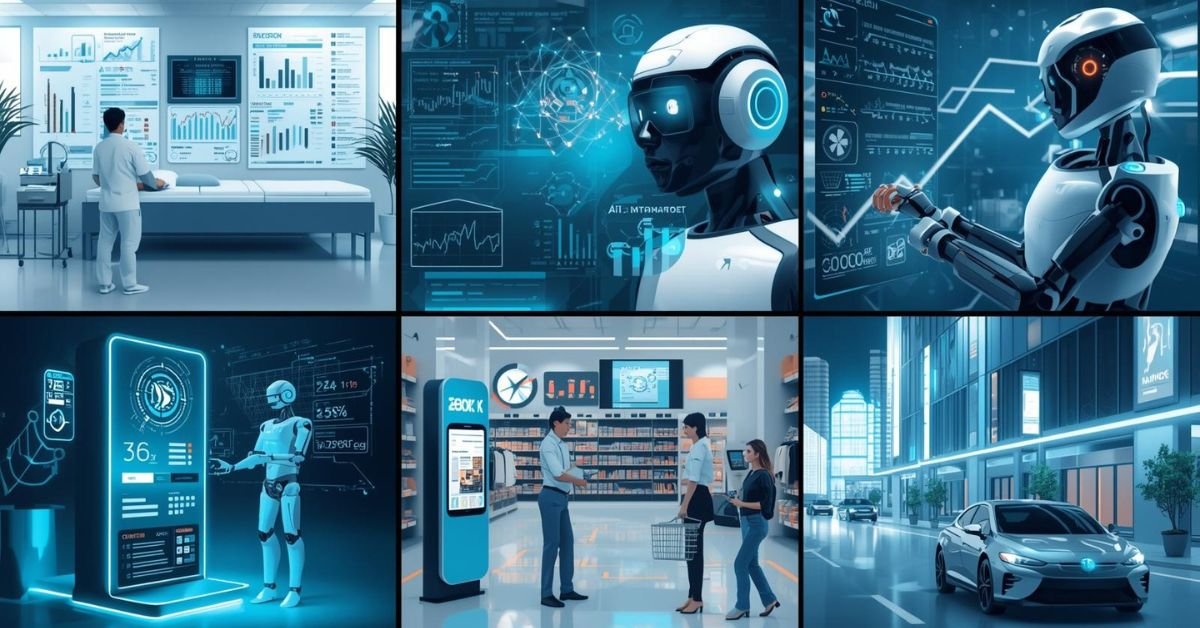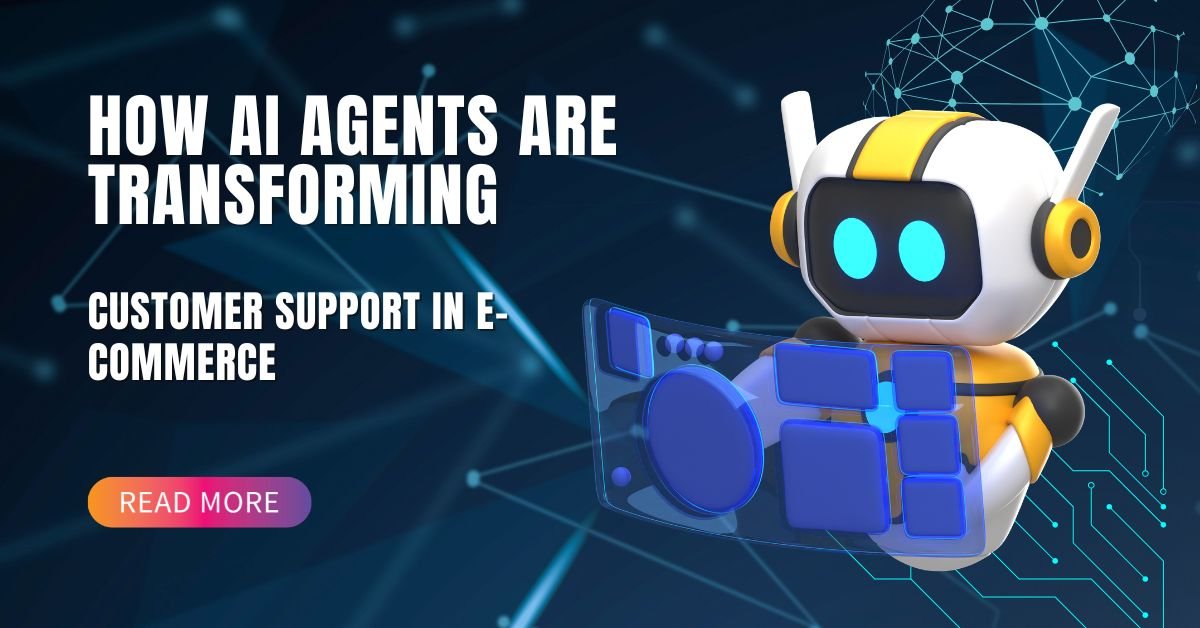Picture this: a shopper is finalizing their order at midnight when the payment fails. Instead of frustration and waiting until morning for customer service, they receive instant, intelligent assistance from AI agents. These digital assistants never sleep, never get tired, and continually learn from each interaction.

This isn’t just convenience—it’s transformation. The adoption of AI agents is reshaping how online retailers interact with customers, resolve issues, and build loyalty. Their rise marks one of the most powerful shifts in customer experience today.
Why AI Agents Matter in Today’s E-commerce
The world of e-commerce is fast, competitive, and global. Customers now expect service that is immediate, personalized, and available around the clock. Traditional support models, reliant on human agents working limited hours, simply cannot meet this demand at scale.
Key Benefits of AI Agents
Speed: Instant responses to FAQs and order queries.
Scalability: Manage thousands of customer conversations simultaneously.
Personalization: Suggest products or solutions based on shopping history.
Consistency: Provide the same level of service every single time.
According to PwC, 73% of customers say that a positive experience is a key factor in loyalty. Retailers using AI agents don’t just save costs—they build lasting trust.
Emerging Trends in AI Agents for E-commerce
1. Conversational Commerce Becomes the Norm
Shoppers increasingly interact with brands through conversations, not forms. From live chat widgets to WhatsApp bots, AI agents are now sales assistants as much as they are problem-solvers.
Example: Sephora leverages conversational bots that ask customers about their preferences, then recommend products in real time—helping to both resolve questions and drive sales.
2. Multilingual and Voice-Enabled Assistance
E-commerce is global, but customer service has often been restricted by language. Modern digital agents can translate queries instantly and reply in the customer’s language. Voice-based systems add another layer of convenience, enabling hands-free problem resolution.
Example: Alibaba integrates voice AI into its shopping apps to assist users in Mandarin, English, and beyond, reducing friction for international buyers.
3. Predictive and Proactive Support
Instead of waiting for a problem, the next generation of automated agents anticipates it. If a delivery is delayed, they notify the customer proactively, offering alternatives before frustration sets in. This predictive ability builds trust and reduces support costs.
4. Human + AI Hybrid Models
The future is not machines versus humans but synergy. AI agents take care of routine queries, such as order tracking, while human agents focus on complex, emotional, or high-value cases. This balance ensures efficiency without sacrificing empathy.
Real-World Applications of AI Agents

Amazon Smart Support
Amazon’s platform integrates AI agents into nearly every touchpoint—tracking orders, managing returns, and suggesting next steps. This reduces call volumes, shortens resolution times, and enhances customer confidence.
H&M Style Advisor
H&M has deployed AI-powered personal stylists that recommend outfits based on customer preferences and browsing history. The result: higher engagement and increased sales through a more curated shopping experience.
Shopify and Small Businesses
Startups often lack large customer service teams. Platforms like Shopify, Zendesk, and Freshdesk now provide plug-and-play intelligent agents, enabling even small brands to deliver round-the-clock, professional-grade support.
Nike and Conversational Sales
Nike uses chat-based AI agents to promote new product launches, answer product sizing questions, and encourage social sharing. These systems blur the line between marketing and support.
Impact of AI Agents on Key Stakeholders
On Businesses
Reduced costs by automating repetitive queries
24/7 availability, fostering trust across time zones
Valuable data insights to improve product design and marketing strategies
On Developers
Growing demand for skills in natural language processing (NLP), machine learning, and user interface design
Opportunity to build flexible, scalable AI solutions that integrate seamlessly with CRMs and e-commerce platforms
On Industries
Competition increasingly shifts from pricing to customer experience
Logistics, payments, and delivery services adopt automated agents to streamline efficiency and resolve disputes faster
On End Users
Faster issue resolution, reducing frustration
Personalized shopping journeys, from product discovery to checkout
Enhanced trust in online transactions through consistent, transparent support
Challenges and Risks in Using AI Agents
Despite their benefits, AI agents come with risks:
Accuracy Issues: Misinterpreting queries can lead to frustration.
Over-automation: Customers may feel trapped when they can’t reach a human.
Data Privacy: Handling sensitive customer information securely is critical.
Solution: Businesses must design systems with a “human-in-the-loop” fallback, transparent data practices, and regular updates to AI models.
Actionable Strategies for Businesses
Start Small: Begin by automating FAQs or simple order tracking before scaling.
Blend Human and AI: Offer easy ways for customers to escalate to human support.
Integrate Systems: Connect AI agents with CRMs and analytics platforms for richer insights.
Train Continuously: Use real interaction data to improve accuracy and personalization over time.
Communicate Clearly: Let customers know when they are talking to an AI versus a human.
Future Possibilities of AI Agents in E-commerce
The next five years will see AI agents grow beyond text-based interactions into fully immersive digital assistants. For a broader perspective on how these digital assistants are shaping multiple industries, you can explore this comprehensive AI agents guide
Emotion Recognition: Detect tone, urgency, or frustration in customer messages to adjust responses.
AR/VR Integration: Imagine walking through a virtual store, guided by an AI assistant suggesting items in 3D.
Generative AI in Marketing: Personalized promotions and campaigns created on-the-fly for each customer.
Cross-Platform Shopping Assistants: One AI that follows you from Instagram to a brand’s website to checkout, ensuring seamless experience.
Sustainability Guidance: Recommending eco-friendly delivery or product alternatives based on user values.
Conclusion: Why AI Agents Are the Backbone of the Future
The rise of AI agents in e-commerce isn’t just about efficiency—it’s a cultural shift in how customers relate to businesses. Shoppers no longer tolerate slow, rigid, or impersonal service. They want instant, intelligent, and empathetic interactions.
For businesses, adopting AI agents means more than saving money. It’s about building stronger customer relationships, boosting sales, and staying competitive in a marketplace where experience often matters more than price.
Final Thought: AI agents are no longer optional tools—they are the backbone of the future of customer support in e-commerce. Those who embrace them early will define the standards for tomorrow’s shopping experiences.

Hi, I’m Amarender Akupathni — founder of Amrtech Insights and a tech enthusiast passionate about AI and innovation. With 10+ years in science and R&D, I simplify complex technologies to help others stay ahead in the digital era.



